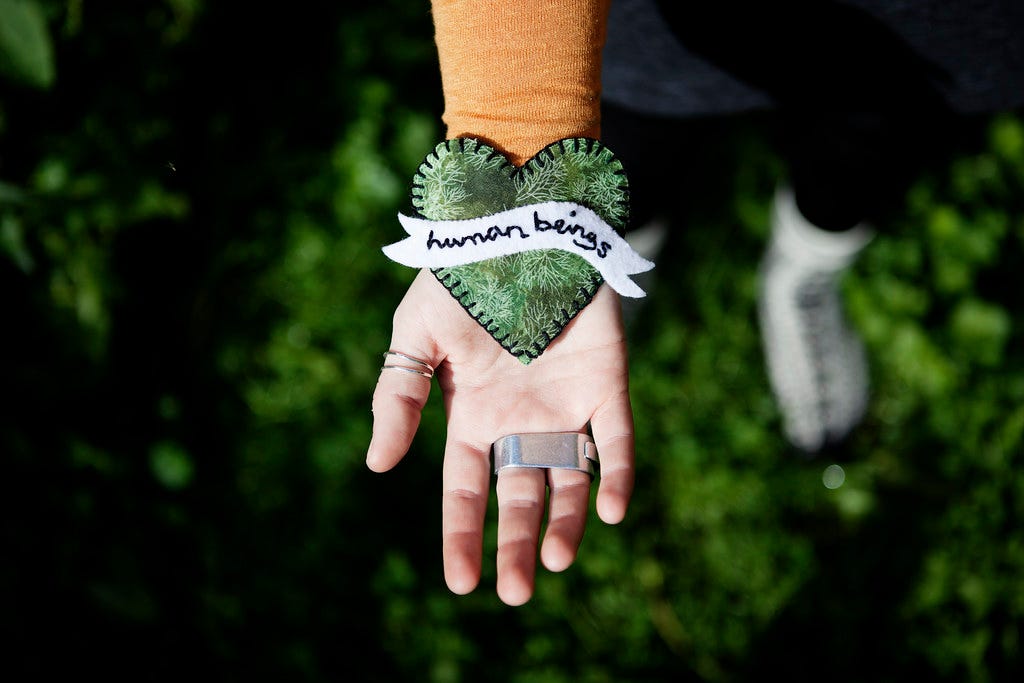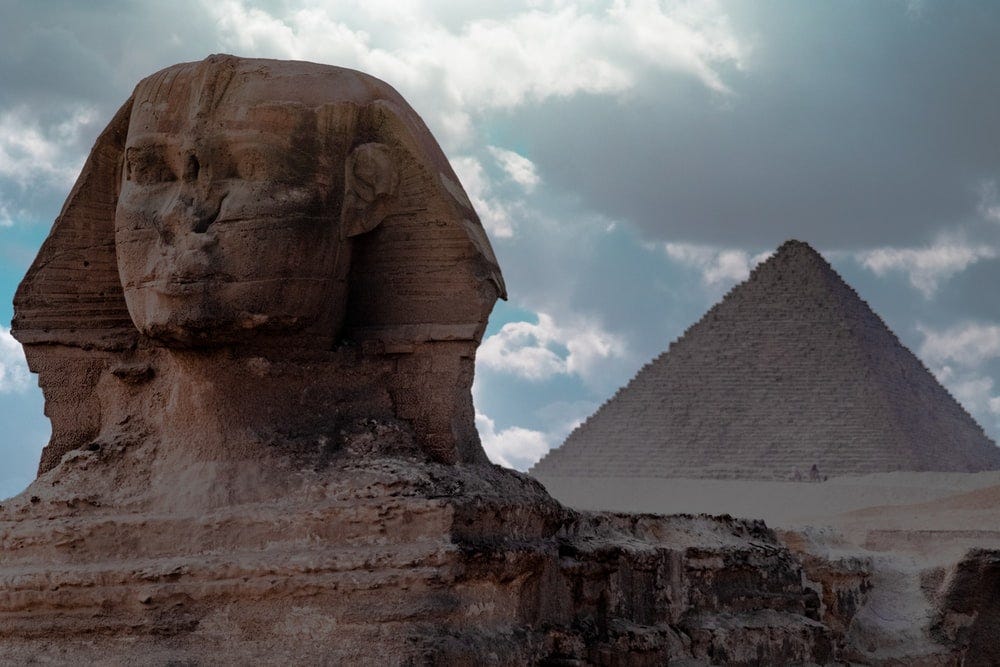Dear Readers,
🔗 FC #66 fetched some colourful responses. Thank you readers for taking the trouble to share your thoughts.
October 10th marks ‘World Mental Health Day’ and the theme this year is ‘Mental Health In An Unequal World’. Mental illness manifests in many ways and is always difficult to deal with. But there is a lot of professional help available to help with it.
In this edition, I would like to talk about and share some thoughts on:
“Pain is inevitable, suffering is optional”
This is a saying commonly attributed to Buddha, but there is no way of confirming it. It was made popular by Haruki Murakami, a celebrated Japanese writer and an avid marathon runner. Apparently a marathon runner, at some stage of the run, experiences pain in his legs and yet summons all the energy he can muster and completes the run. For the runner, pain was inevitable but it was his option to suffer that pain and complete the race.
Imagine that a person was required to undergo a not-so-serious procedure. He kept postponing it until it became rather inevitable. Right from the time he became aware of the medical condition, his imagination ran wild. He Googled, cross-checked what he read with his doctor who felt rather insulted at being asked to confirm if he agreed with Google. But the doctor held his counsel and reassured him that the search engine does not conduct research but gives out general information which should not be relied upon for treating individual cases.
The interesting part is that even before going under the scalpel, our man had begun to suffer, imagining all kinds of pain he had to endure. He slept fitfully and contemplated writing a Will, imagining that he might end up in the hands of the undertaker. His doctor told him to not worry about the procedure which was very simple and done under local anaesthesia which the patient could actually see on the screen.
This rattled the man further. He thought ‘I would rather be under than be wide awake and be my own audience in the theatre.’ Eventually, the procedure was done and our man is now ready to shred the Will and is all set to be an unsolicited consultant for other similarly afflicted persons.
The narrative above is my own concoction, to illustrate the point that suffering is more a state of mind. Even when I tell someone ‘I am pained by what my friend said’, I have no bodily pain but my feelings have been hurt. Whether I should dwell on it and let that overpower my senses is purely optional. You often come across the phrase ‘Oh! That person is very sensitive’, which means they are easily hurt by anything said to them. Speaking for myself, I was, for many years, very sensitive to what people said to me and often read more into what was said. But now I have, to a large extent, overcome that hurtful feeling by logical reasoning. I now ask myself, “Why did that person say what he said or act the way he did or what would I have done in his place?”
It has helped me put things and situations in perspective and that has allowed me to close out the option of suffering.
Pain is a bodily experience and can be managed with medication, or which can be tolerated if one has a high threshold for pain. Pain is inevitable but there is a healing process that takes care of the pain. What if the pain is a transmitted fear? It is often said that memories of suffering linger for a long time. Like a lady who had experienced labour pains reliving it to tell an expectant mother “Oh! Nothing is more painful than labour pain”. This may cause the expectant mother, who is already a bit apprehensive of the labour she has to go through, to suffer from imagining that pain. It could play on her mind. She can overcome that in a number of ways if she realises that the pain is inevitable but suffering from the fear of that pain is optional.
We keep hearing the expression, “Words are often more hurtful than physical hurt.” In reality, when something is said, the way you process it in your mind determines how hurtful it is. There are people who are considered ‘thick-skinned’. Regardless of what is said they seem unaffected. Interestingly, thick skin is not an attribute of the body but that of the mind. When I said earlier that I have overcome my sensitivity I am actually telling you that from being thin-skinned I am now thick-skinned. People who are thick-skinned or who develop a thick skin can save themselves from any kind of suffering inflicted by others around them. If you are a popular movie star or a public figure, you have to develop a thick skin to remain unaffected by what is unjustly said about you or your life and the way you choose to live it. Regardless of who we are, it is good to develop thick skin. There’s a joke about how Orange thought it had a thick skin until Trump came along.
The opposite of being thick-skinned is ‘to wear your heart on your sleeve’, which essentially means to openly display or make known one’s sentiments, feelings and emotions. Apparently, in medieval times, it was the custom for a knight to wear his lady’s name or scarf on his sleeve during a tournament. The phrase was popularised by Shakespeare when he used it in his play ‘Othello’.
If a person is wearing his or her heart on the sleeve, they may display emotions for everyone to see and may be seen as an open person who externalises feelings. Thus, they are able to avoid or minimise any suffering that those emotions might cause.
Politicians are said to be thick-skinned and unmoved by allegations against them. But when it comes to empathising with the people of the constituency, particularly as the election day approaches, the politician pretends to wear his heart on his sleeve and proclaims his commitment to providing all the facilities and even makes a promise which he never intended to keep in the first place.
Being poker-faced is the opposite of wearing the heart on the sleeve. Some people are secretive and not given to display of emotions. This is perhaps true in a formal setup like business or in an office. You may have also heard the expression ‘inscrutable like a Sphinx’. Near the ancient pyramids of Giza, not far from the river Nile, sits the inscrutable Egyptian Sphinx. Part man and part lion, this colossus has intrigued archaeologists for ages. The mighty Sphinx is nearly 5000 years old, but its exact purpose seems buried forever in the sands of time. If you have a poker face you could also be told that your face is like the face of the inscrutable Sphinx.
There is a board game by that name and if you are interested in playing the game against your PC you can find the instructions here.
Even if you have a poker face or a face like the Sphinx, it is no indication that you are not experiencing pain or suffering. Instead, you might be, but not necessarily, internalising feelings and suffering silently. The face is just an outward feature but the mind behind the face is what matters when it comes to dealing with pain and discarding the suffering.
Feelings, situations, or occurrences by themselves do not lead to suffering. It is how you deal with them that determines your vulnerability. Imagine you are dragged into an argument with a couple of ruffians on the road. If you don’t follow the rule ‘discretion is the better part of valour’, you will find yourself in the thick of abuse that lingers in your mind for days after the incident. You suffer from those thoughts and you begin to castigate yourself for not handling it differently.
I do hope you did not suffer too much reading this. Some readers may call me ‘insufferable’.
Whatever might be your conclusion, you have suffrage, which has nothing to do with suffering but gives you the right to vote for or against this edition.
Thank you, readers. The pandemic has inflicted pain and suffering on the entire community, but in demonstrating remarkable resilience, the community has endured the inevitable pain and has evidently chosen not to suffer. Life goes on. Take care and be safe.








An apt topic considering the pain and anguish many of us have faced because of the pandemic. My colleague lost his dad, mom and sister in a span of a month which was terrible.
The topic also brings to mind the haunting episode of my femur fracture in 2003 and the excruciating pain I went through. It also reminds me of how helpful you were when we were struggling during this period in Delhi. Physical pain at its torturous best coupled with specks of fond memories.
On the comical side let's not forget the comparison of the sustenance of pain to our old friend "The Buffalo" and how we need to be thick skinned like him. Yamme charma is what all of us need to don during pressing times!!
Great blog, Pras. However, I do think the man should not shred his will. Possibly the importance of writing a will could be included in a future blog?